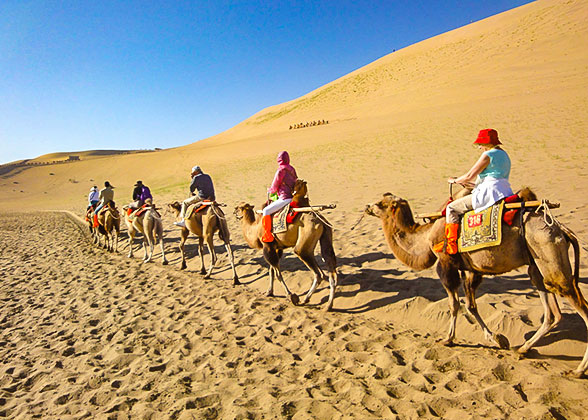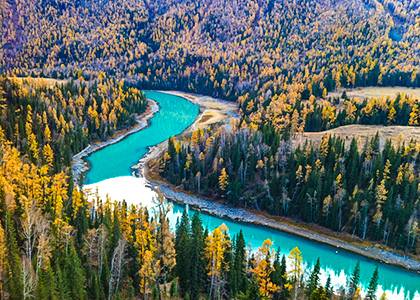What is the best time to visit Urumqi and northern Xinjiang?
June to early October is the best time to travel to most areas of northern Xinjiang. June to August marks the most vibrant period of northern Xinjiang, when you can see endless stretches of green grasslands dotted with colorful wildflowers. September to early October provides you with another kind of beauty: at that time, the grasslands and leaves will turn their color, painting northern Xinjiang into a golden world. Moreover, the weather from June to early October is quite favorable for traveling and walking around, with mild temperature and low rainfall.
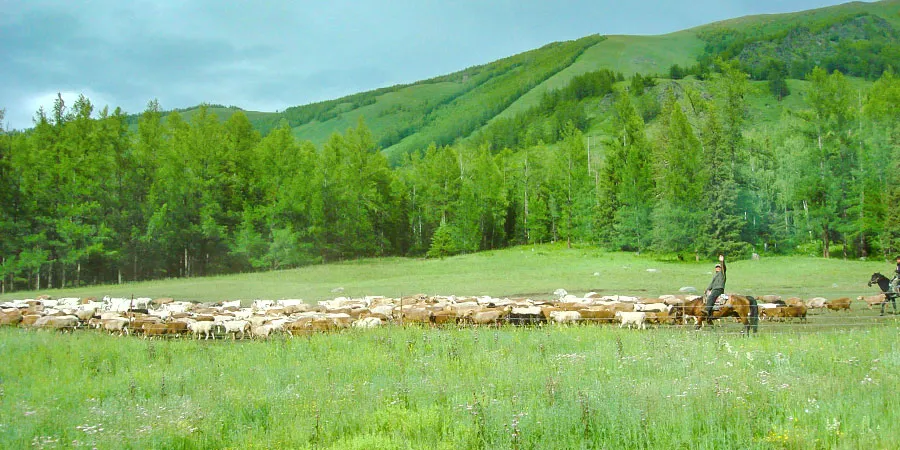 |
| Vibrant Northern Xinjiang from June to August |
Best Time to Visit Turpan
Turpan is an exception in northern Xinjiang. Due to its unique terrain, Turpan experiences higher temperatures year-round compared with other northern Xinjiang regions, with summer being particularly notable. During June to August, when the temperature in other northern Xinjiang areas is quite comfortable, Turpan’s daily highs can reach 35-50°C (95-122°F), making outdoor activities inadvisable. By contrast, the best time to visit Turpan is cooler April, September, and October.
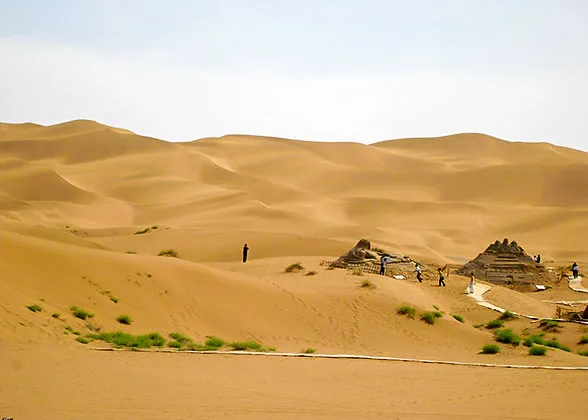 | | Cozy Turpan during this Period | | 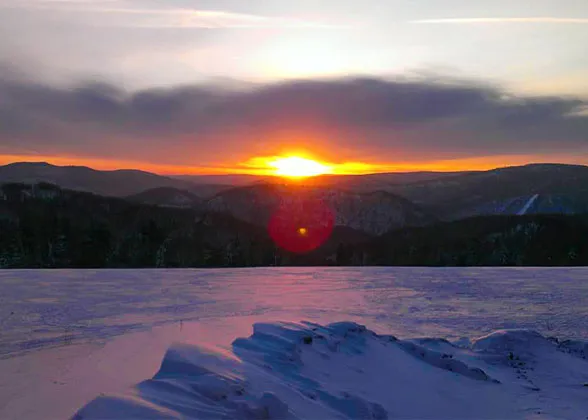 | | Xinjiang Snow View | |
Best Time for Snow Views
For some travelers, the winter months of December to February, when even the daily high is only around -10°C (14°F), are too cold for visiting northern Xinjiang. However, for those who love snow, this period may be the perfect time to explore the region. During this period, areas like
Kanas and
Hemu Village in Altay may experience several heavy snowfalls, blanketing the ground with thick snow. Whether you wish to admire pristine and white snowy landscapes or enjoy exciting winter activities such as skiing, these destinations offer exceptional travel experiences.
What is the best time to visit Kashgar and southern Xinjiang?
If you plan to visit southern Xinjiang, April to May and September to October are the most recommended times. The reasons are: (1) During these two periods, the temperature is neither too hot nor too cold, allowing you to do outdoor visiting comfortably; (2) The sceneries are appealing: in addition to the cultural attractions that are worth visiting all year round, April to May provides you with beautiful pink apricot blossoms in areas like the Pamir Plateau, and September to October shows you wind ranges of golden poplar forests.
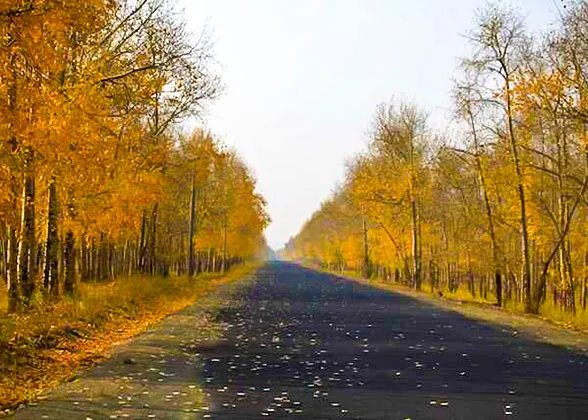 | | Golden Southern Xinjiang from September to October | | 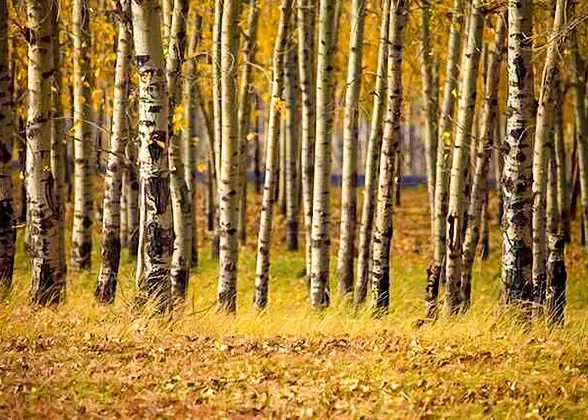 | | Beautiful Autumn | |
Busiest and Most Expensive Travel Time to Xinjiang
Generally speaking, visiting northern and southern Xinjiang during their best times in 2026 means you will encounter larger crowds and higher costs for accommodations and other services. It’s inevitable. What’s more, when the best times coincide with Chinese public holidays, tourist numbers and hotel prices soar to extremely high levels: the May Day holiday from May 1st to 5th, the summer vacation from July to August, and the
National Day holiday usually from October 1st to 7th.
Which Month Should I Avoid Visiting Xinjiang?
For northern Xinjiang, the most worthwhile sights are often the green grasslands, golden autumn landscapes, or pristine snowy scenes. The months when none of these three landscapes exist are when northern Xinjiang’s scenery is at its least appealing, and are recommended to avoid. Generally, late March to April, and early November mark transitional periods between seasons, with withered grass and bare trees. Worse still, late March to April is the time when snow melts, potentially leaving roads muddy across the region.
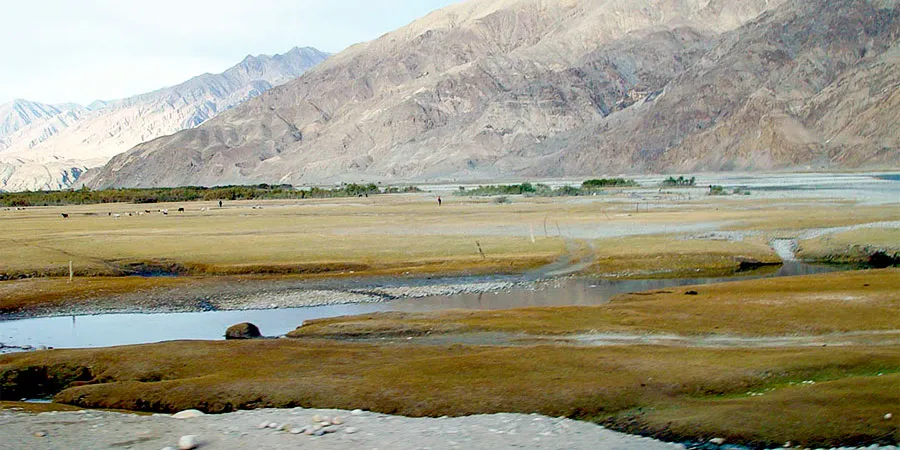 |
| Less Appealing Northern Xinjiang at that Time |
Late June to August is the period not recommended for visiting southern Xinjiang. During this time, temperature is high across most part of the region, with abundant sunshine and intense ultraviolet radiation. Under such weather conditions, outdoor excursions carry a high risk of heatstroke.
Xinjiang Weather by Month:
- Last updated on Dec. 31, 2025 by Demi Li -







